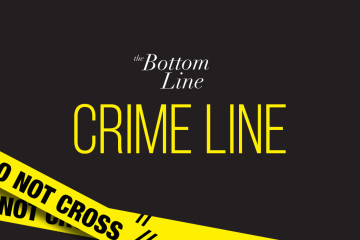Justice Scalia Dies, Nomination Impending
Supreme Court Justice Antonin Scalia, 79, died in a West Texas luxury resort of apparent natural causes on February 13, 2016. Nominated by President Ronald Reagan in 1986, Scalia was the longest-serving justice, sitting on the Supreme Court for nearly 30 years.
The Supreme Court is currently composed of eight seats, Chief Justice John Roberts presiding.
A staunch conservative, Scalia was an outspoken critic and opponent of abortion, gay marriage, and gun control. In addition, he was a loudly proclaimed “originalist” – Scalia believed the Constitution should be interpreted as the Founding Fathers would when it was originally written.
Scalia’s death comes at a critical time. Not only is President Obama leaving office in mere months, but the Supreme Court is set to hear Whole Woman’s Health v. Cole, a major abortion case. On Whole Woman’s Health v. Cole, Politico’s Jennifer Haberkorn stated that, “[i]t promises to be the most significant abortion case in at least two decades.”
Whole Woman’s Health v. Cole will determine whether a 2013 Texas law specifying medical requirements for abortion clinics unconstitutionally restricts a woman’s right to have an abortion.
The replacement of conservative Justice Scalia could tip the balance of the Supreme Court. In past years, Justices Kagan, Sotomayor, Ginsburg, and Breyer have consistently demonstrated liberal views, while Justices Roberts, Thomas, Alto, and Scalia have consistently remained conservative; Justice Kennedy falls as a moderate and, often, serves as a swing vote.
President Obama is likely to nominate a liberal justice, as he did with Sotomayor and Kagan. However, Obama is nearing the end of his term and he faces a Republican-dominated Senate. With the impending presidential election, it is very possible that the Senate will attempt to not accept any nomination the president makes.
Senate Majority Leader Mitch McConnell (R) released a statement the night of Scalia’s death, asserting that “the American people should have a voice in the selection of their next Supreme Court Justice. Therefore, this vacancy should not be filled until we have a new President.” Several current GOP primary candidates, including Senators Ted Cruz and Marco Rubio, as well as Donald Trump, have since echoed McConnell’s statements.
Senate Minority Leader Harry Reid (D) responded to McConnell and company with a statement urging immediate presidential action. “The President can and should send the Senate a nominee right away,” Reid stated. “The Senate has a responsibility to fill vacancies as soon as possible.”
Around 10:00 p.m. on February 13, President Obama expressed his condolences to the justice’s family and announced that he did, indeed, intend to nominate a successor.
The replacement of Justice Scalia is likely to become an issue for debate in the current presidential race.
The Republican-controlled Senate might delay acceptance of the nomination for the same reason President Obama may push for acceptance – control over the Supreme Court. Assuming a 2016 Democratic loss, a Republican president would nominate a conservative justice, maintaining the current ideological equilibrium of the Supreme Court and preserving the conservative voice.
In President Obama’s 2016 State of the Union address, he emphasized the importance of change and securing a prosperous future of the United States. Nominating the next Supreme Court justice, particularly given the ideological composition of the Supreme Court, is a logical way to secure such a change and future for the United States. Facing a hostile Senate is unlikely to deter him.





1 Comment